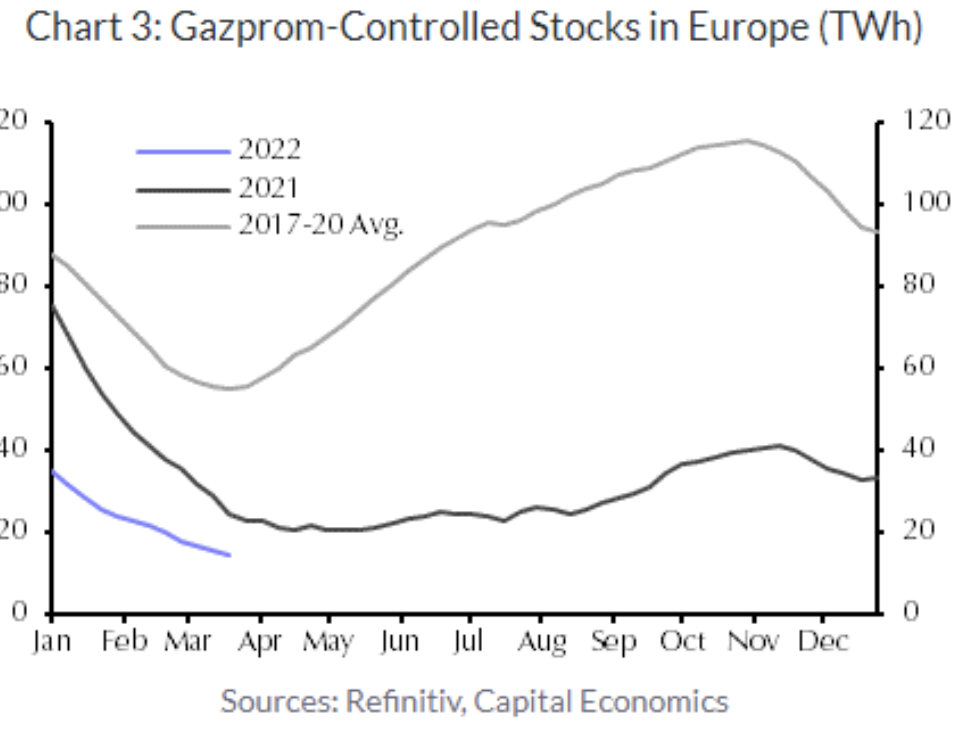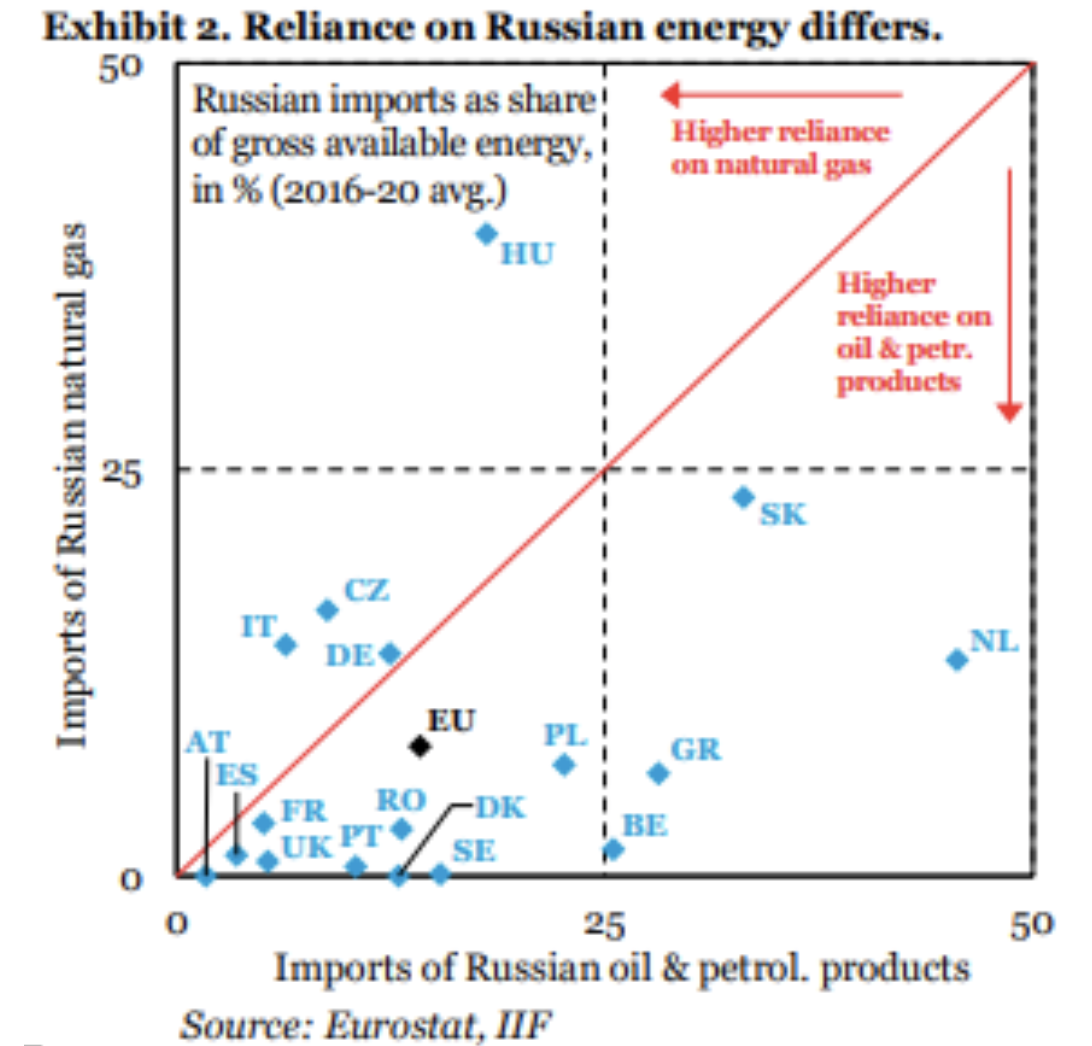Geht es Russland um Rohstoffdominanz?
John Authers diskutiert in seinem Newsletter bei Bloomberg eine interessante Theorie: Es geht Russland nicht um die Ukraine, es geht um die Stärkung der Position im globalen Kampf um Ressourcen:
- “For the world, the most profound impact of the Ukraine conflict could rest on energy. Indeed, it’s tempting to say that this is a war over energy, even if it has a different declared purpose — which would make it very similar, in critics’ eyes, to the U.S. misadventure in Iraq 19 years ago.” – bto: Na, na!
- “In a provocative but persuasive column for the New York Times, Bret Stephens suggests that Russia’s war aim is not preventing NATO enlargement, or rebuilding the Soviet empire, but cementing its status as an energy superpower: “Suppose for a moment that Putin never intended to conquer all of Ukraine: that, from the beginning, his real targets were the energy riches of Ukraine’s east, which contain Europe’s second-largest known reserves of natural gas (after Norway’s). Combine that with Russia’s previous territorial seizures in Crimea (which has huge offshore energy fields) and the eastern provinces of Luhansk and Donetsk (which contain part of an enormous shale-gas field), as well as Putin’s bid to control most or all of Ukraine’s coastline, and the shape of Putin’s ambitions become clear. He’s less interested in reuniting the Russian-speaking world than he is in securing Russia’s energy dominance.” – bto: Er würde auch im Bereich der Nahrungsmittel einen großen Fortschritt erreichen.
- “Even if this is not the aim, the possibility of entrenching Russia’s energy power is now at the center of the broader conflict between Putin’s Russia and the West. Europe’s reliance on Russia for its energy needs has long been identified as a key weakness, and Moscow exploited it in advance. Stocks of Russian-controlled gas in Europe at the beginning of this year were only a fraction of the normal average, as Capital Economics illustrates.” – bto: Das wissen wir genauso wie die Tatsache, dass Russland bereits vor Monaten den Export von Düngemitteln eingestellt hat.

Quelle: Bloomberg
- (…) the Institute of International Finance finds that Hungary is the most exposed to Russia, the Netherlands relies on Russia for oil products more than any other country on the continent, and Italy, the Czech Republic and Germany could all have a problem due to their dependency on natural gas. Moving to an outright embargo would challenge European unity.” – bto: eine interessante Darstellung, wie ich finde:

Quelle: Bloomberg
- “This is where the lessons of the defeats of Napoleon and Hitler come in. The energy war looks as though it will degenerate into a war of attrition over which side can survive an energy embargo the longest. Can Europe find an alternative source, and can Russia find an alternative buyer? Beyond the future of Ukraine, the outcome could determine whether the world does divide once more into separate economic blocs.” – bto: Wer hält länger durch? Sicherlich hält der Westen durch. Man muss sich aber fragen, ob Europa und die USA wirtschaftlich so gut dastehen, wie sie müssten.
- “On the Russian side, India has already agreed to buy discounted oil, while (very, very high-stakes) discussions with China continue. Meanwhile, Germany has abandoned decades of foreign policy that emphasized good relations with Russia and instead announced an emergency plan to use other suppliers, while Poland is aiming to end all imports from Russia by year-end. Beyond its energy infrastructure, the West’s ability to survive an economic war of attrition like this will be vitally affected by its economic health at the outset.” – bto: Da muss man nüchtern festhalten, dass es nicht so gut um den Westen bestellt ist.







